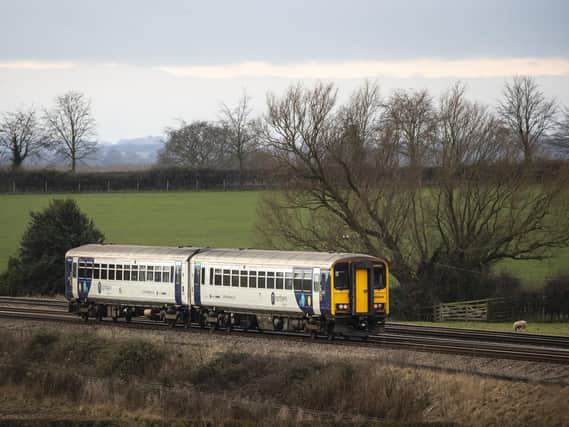Demand for trains in Yorkshire sank to mid-19th century levels during lockdown


The Office of Rail and Road (ORR) said more than 400 million fewer journeys were made between April and June compared with the same period in 2019. Just 35 million journeys were made during the quarter this year.
Yorkshire's biggest operator Northern Trains saw 1.5m journeys during the three months, just 5.7 per cent of the total for the same period in 2019.
Advertisement
Hide AdAdvertisement
Hide AdAnd TransPennine Express saw 470,000 journeys, representing 6.3 per cent of the previous year's total.
Passenger revenue between April and June was £184 million, just 6.9 per cent of the £2.7 billion in the same period last year.
Department for Transport (DfT) figures show demand has since returned to around 38% of normal levels.
ORR director of railway planning and performance Graham Richards said: "This unprecedented fall in passenger numbers, the largest on record to levels last seen in the mid-19th century, has clearly had an impact on both rail usage and also ticketing revenue.
Advertisement
Hide AdAdvertisement
Hide Ad"These figures include the period of lockdown and reassuringly we're now seeing passenger numbers slowly increase.
"ORR has worked closely with the industry, and continues to do so, to ensure the necessary health and safety advice and guidance is in place.
"Rail is one of the safest ways to travel and our inspectors continue to monitor the reality on the ground to ensure people have the confidence that they can travel safely."
More journeys were recorded in London and the South East compared to the rest of the country. Govia Thameslink Railway recorded 7.5 million passenger journeys this quarter, the most of any operator.
Advertisement
Hide AdAdvertisement
Hide AdTSSA transport union General Secretary Manuel Cortes said: “The public have rightly followed government advice and stayed away from our railways during the worst of the pandemic, leaving the network safe and available for our key workers. Low passenger numbers are stark but an inevitable and expected result of efforts to combat the virus over this period.
“Our railways remain one of the safest forms of transport and they will be crucial to our economic recovery. It’s crucial that our industry adapts to the change in travel habits and adopts new approaches to ticketing, such as flexible season tickets.
“The daily commute may have been altered forever, so it’s now more important than ever that people use our railways for leisure activities instead of getting into cars. Electric rail is cleaner and safer for our environment and has many health advantages as well as helping to tackle climate change. It’s vital that government encourages people to use rail travel in safe and responsible ways.”